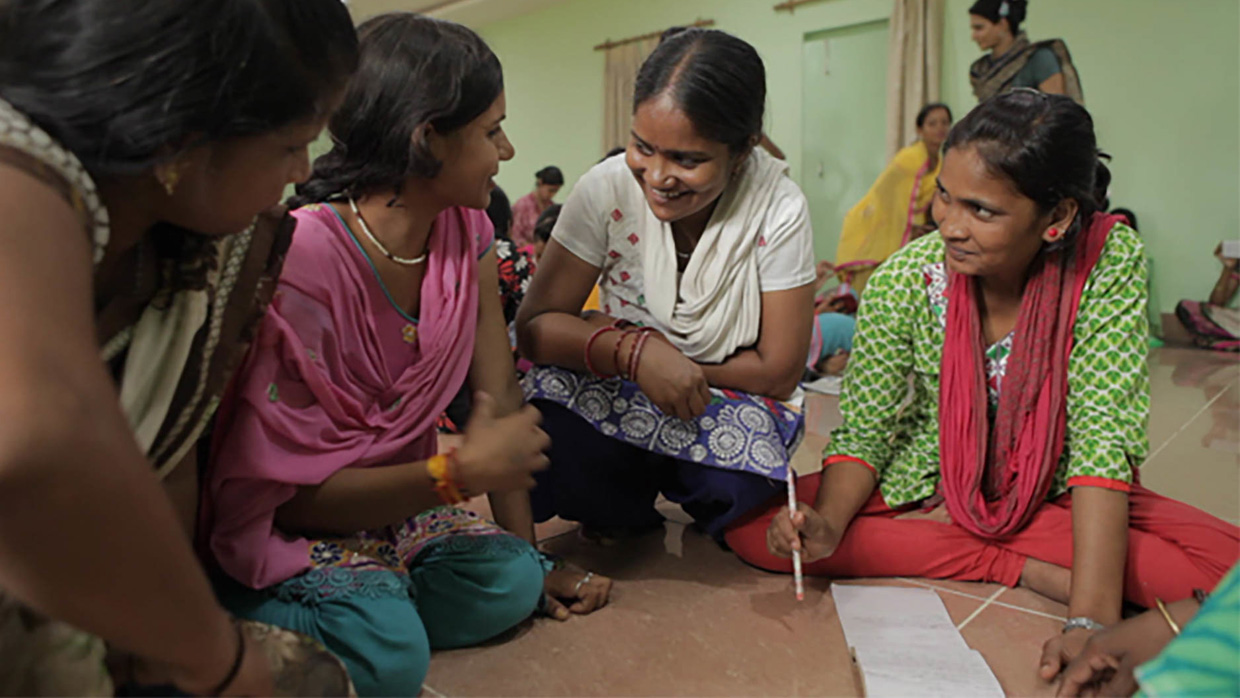 Back to selection
Back to selection
“The Most Cruel Form of Social Distancing”: Directors Rintu Thomas and Sushmit Ghosh | Writing With Fire
 Writing With Fire
Writing With Fire How did events of 2020—any of them—change your film, either in the way you approached it, produced it, post-produced it, or are now thinking about it?
We had set up an edit studio at a friends’ place in the mountains and were busy working through the post-production when the lockdown was declared in India. That’s when it dawned that we couldn’t head back to Delhi, where our home is, nearly 600 kilometers away. Our consultant editor, the amazing Anne Fabini, was supposed to join us for two weeks. Just a few days before she was scheduled to travel, the travel lockdowns were announced. It was a huge setback. In that long pause, we decided to harness every possibility that the internet offered. We designed a workflow between Anne in Berlin and us in India to break the rough cut down to singular scenes and shape the final cut, slowly and carefully. What was supposed to be a four-week engagement turned out to span into many, many months over Skype, Zoom and excel sheets, but it was fantastic—rigorous and intense. And strangely, it turned out to be a situation that eventually worked in our favor. We were stuck in the middle of a forest, away from civilization, with a river nearby and five dogs for company—sort of out of an Enid Blyton book! So we spent four months in isolation, editing down a massive rough cut to a two-hour story and when the lockdown opened partially, we were able to head back home.
Once we had a picture lock, things got really complicated. Our sound design, music and final grade was all set to be in Mumbai while the final sound mix was in Finland. Of course, everything had to be reworked and we coordinated with everyone online. But when we started receiving the sound files for review, we realized that our headphones and home sound systems just didn’t have the capacity to give us the full spectrum sound that was being designed in the studios. So we decided to fly to Mumbai and complete the entire post from there. Mumbai is in the state of Maharashtra, which much like California, is the epicenter of the COVID epidemic in India. We were immediately hit with the complexity of living in hyper-sanitized hotels, city curfews that affected studio bookings and the time difference between Finland and India. The entire crew pulled through this—we had a fantastic team of professionals and everyone was able to deliver on the film’s promise by bringing their expertise and innovation, despite the complex workflows.
Philosophically, the pandemic gave us time to introspect and ponder on our vulnerabilities as storytellers and got us thinking about what it means to be making this film at this time. What has become even more clearer is the irony of the word that describes the safety associated with our lives at this moment—”social distancing.” In many ways, our film explores a society so steeped in the practice of caste—the most cruel form of social distancing in practice for centuries. In a post-COVID world, when the learnings accrued from this void emerge—this film will allow us to spotlight Meera and her colleagues chipping away at the uncomfortable realities of our society and allow us to find hope in their journey to access justice for all.
(Check back daily during the festival — new answers are uploaded on the day of each film’s premiere. Read all the responses here.)
